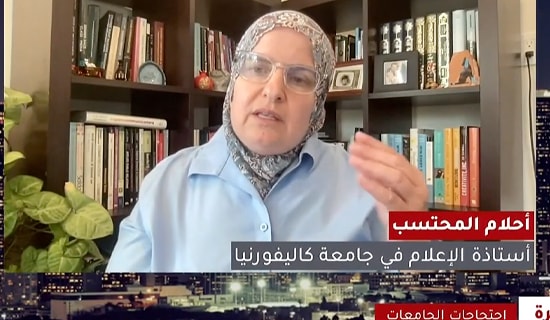
The first French female imam, Kahina Bahloul, said that regrettably, Sufi thinking and philosophical approaches to Islam have no place in Arab countries and societies. She made these remarks in an interview with France 24 TV that aired on April 17, 2021. Bahloul said that while there are political reasons for this, the economic and social problems in Arab countries prevent Arab societies from having the freedom necessary to develop a spiritual and meaningful understanding of religion. She elaborated that people are limited by a "superficial" understanding of the Quran as a set of rules that state what is halal and what is haram. Bahloul asked: "How can we be satisfied by this superficial reading of the Quran?"
Kahina Bahloul: "When we come to examine the way that Arab countries deal with Sufi thought, or with the spiritual aspects in Islam, we find that some Arab countries have prevented the distribution of the writings and thought of some [Muslim] philosophers. It is very unfortunate and sad for me to have to say this, but this demonstrates the degeneration of Islamic philosophical thought. A few years ago, I traveled to America and met an American thinker, who teaches Ibn Arabi's thought at a university in New York. I said to myself, how is it possible that thinkers in developed countries like America teach about great thinkers and philosophers, like Ibn Arabi, in their universities, while the Muslims, who gave rise to this thought, do not understand it."
Interviewer: "What are the reasons for this exclusion? Is it for political or ideological reasons?"
Bahloul: "There are many reasons, I think, including of course political ones, but I believe that they are related to other reasons, economic for example. Economic and social problems in Arab countries prevent Arab societies from developing their thought, and allowing the necessary freedom in order to think more openly about religion and its meaning.
[...]
"Today, Islam has become nothing more than rules that are imposed upon us and tell us what is halal and what is haram. However, how can we be satisfied by this superficial reading of the Quran and of our Islamic texts?"












